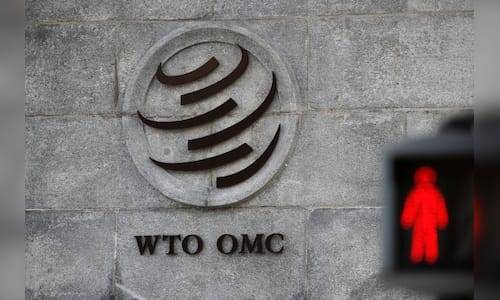Main Points In Hindi (मुख्य बातें – हिंदी में)
-
भारत का विरोध: भारत ने वैश्विक मानकों को स्थापित करने के लिए पेश किए गए निवेश सुविधा प्रस्ताव (आईएफडी) का विरोध किया है, जिसे डब्ल्यूटीओ के 166 सदस्यों में से 128 का समर्थन प्राप्त है। भारत का मानना है कि यह गरीब देशों की नीतिगत स्वायत्तता को कमजोर कर सकता है।
-
व्यापार वार्ता का हिस्सा नहीं: भारत ने यह तर्क दिया है कि निवेश व्यापार का हिस्से में नहीं आता और इसलिए इसे डब्ल्यूटीओ द्वारा तब तक नहीं अपनाया जा सकता जब तक इस पर विशेष सहमति नहीं होती।
-
दूसरे देशों का समर्थन: चीन ने कई देशों को आईएफडी प्रस्ताव के पक्ष में समर्थन देने के लिए प्रेरित किया है, जिसमें पाकिस्तान हाल ही में शामिल हुआ है। हालांकि, अमेरिका इस समझौते का विरोध नहीं कर रहा है, लेकिन भारत, दक्षिण अफ्रीका, नामीबिया और तुर्किये इसका विरोध कर रहे हैं।
-
संविधानिक आपत्तियाँ: भारत ने आईएफडी के खिलाफ अपनी आपत्तियाँ डब्ल्यूटीओ सचिवालय को लिखित रूप में सौंपी हैं और इंडोनेशिया के साथ द्विपक्षीय वार्ता के दौरान भी समस्याओं पर चर्चा की है।
- वाणिज्य मंत्री का बयान: भारत के वाणिज्य और उद्योग मंत्री पीयूष गोयल ने कहा है कि डब्ल्यूटीओ के अधिकार क्षेत्र से बाहर के मुद्दों को नहीं लाना चाहिए और उन्हें उनके संबंधित निकायों द्वारा देखा जाना चाहिए।
Main Points In English(मुख्य बातें – अंग्रेज़ी में)
Here are the main points regarding India’s opposition to the Investment Facilitation for Development (IFD) proposal supported by 128 of the 166 World Trade Organization (WTO) members:
-
Concerns about Policy Autonomy: India believes that the IFD, instead of benefiting poorer nations, could undermine their policy autonomy, especially if they lack the capacity to protect their institutions from foreign control.
-
Rejection of Inclusion in Trade Negotiations: India argues that investment is not a part of trade and should not be included in trade negotiations, stating that the IFD cannot be adopted by the WTO without special consensus on this issue.
-
Bilateral Discussions: India has engaged in bilateral talks, citing concerns raised by Indonesia regarding the IFD, indicating that there are significant issues that need addressing before proceeding.
-
Historical Context: During the WTO’s 13th ministerial conference held in Abu Dhabi earlier this year, India clarified its stance against including IFD in the WTO mandate and submitted written objections to the WTO Secretariat.
- Call for Respecting WTO Mandate: Indian Commerce and Industry Minister Piyush Goyal emphasized that issues beyond the WTO’s jurisdiction should be handled by their respective bodies, asserting the need for compliance with longstanding WTO orders to restore global trust.


Complete News In Hindi(पूरी खबर – हिंदी में)
| कंपनी | कीमत | परिवर्तन | %परिवर्तन |
|---|
डब्ल्यूटीओ की वेबसाइट के अनुसार, आईएफडी समझौता उन सदस्य देशों के प्रयासों का समर्थन करने के लिए वैश्विक मानक प्रदान करता है जो निवेश और व्यापार माहौल में सुधार के लिए समझौते के पक्षकार हैं और इसका उद्देश्य अर्थव्यवस्था के सभी क्षेत्रों में निवेशकों के लिए निवेश करना, आचरण करना आसान बनाना है। उनके दैनिक व्यवसाय और उनके परिचालन का विस्तार।
हालाँकि, भारत का विचार है कि गरीब देशों के लिए फायदेमंद होने के बजाय, IFD उनकी नीतिगत स्वायत्तता को कमजोर कर सकता है यदि उनके पास अपने संस्थानों को अन्य देशों द्वारा कब्जे में लेने से बचाने के लिए पर्याप्त क्षमता नहीं है।
यह भी पढ़ें: भारत अन्य कृषि मुद्दों से पहले सार्वजनिक स्टॉकहोल्डिंग पर स्थायी डब्ल्यूटीओ समाधान की मांग करता है
सरकारी सूत्रों ने बताया है सीएनबीसी-टीवी 18 चीन ने कई देशों से प्रस्ताव का समर्थन करवाकर आईएफडी के पक्ष में जबरदस्त दबाव बनाया है, जिसमें पाकिस्तान अंतिम जनरल काउंसिल (जीसी) में समर्थन देने वाला नवीनतम देश है।
हालाँकि संयुक्त राज्य अमेरिका ऐसे किसी भी बहुपक्षीय समझौते में शामिल होने के लिए तैयार नहीं है, लेकिन उसने आईएफडी का विरोध नहीं किया है, केवल भारत, दक्षिण अफ्रीका, नामीबिया और तुर्किये इस पहल का विरोध कर रहे हैं।
यह कहते हुए कि निवेश व्यापार का हिस्सा नहीं है और इसलिए व्यापार वार्ता का हिस्सा नहीं बन सकता है, भारत ने दावा किया है कि इसे डब्ल्यूटीओ द्वारा तब तक नहीं अपनाया जा सकता जब तक कि इस मुद्दे पर विशेष सहमति न हो।
सरकारी सूत्रों ने कहा कि भारत ने इंडोनेशिया के अपने पेपर का हवाला देते हुए उसके साथ द्विपक्षीय वार्ता भी की है, जहां उसने आईएफडी के साथ समस्याओं की ओर इशारा किया था।
यह भी पढ़ें: भारत ने डब्ल्यूटीओ में मत्स्य पालन समझौते से छूट मांगी, कहा कि विकसित देश प्रति मछुआरे को 200 गुना सब्सिडी देते हैं
स्थिरता की आड़ में व्यापार संरक्षणवाद को डब्ल्यूटीओ/जीएटीटी मानदंडों के तहत अस्थिर करार देते हुए, सरकारी सूत्रों ने संकेत दिया कि कई देश ऊर्जा के पारंपरिक स्रोतों पर निर्भरता के कारण कार्बन टैक्स का विरोध कर सकते हैं, लेकिन अभी तक अपनी आपत्तियों को स्पष्ट नहीं किया है।
इस साल की शुरुआत में अबू धाबी में डब्ल्यूटीओ के 13वें मंत्रिस्तरीय सम्मेलन में, भारत ने डब्ल्यूटीओ जनादेश के एक हिस्से के रूप में आईएफडी को शामिल करने के खिलाफ अपनी स्थिति स्पष्ट की और डब्ल्यूटीओ सचिवालय को लिखित आपत्तियां सौंपीं।
भारत के वाणिज्य और उद्योग मंत्री पीयूष गोयल ने कहा कि डब्ल्यूटीओ के अधिकार क्षेत्र से बाहर के मुद्दों को सामने नहीं लाया जाना चाहिए और उन्हें उनके संबंधित निकायों द्वारा देखा जाना चाहिए।
यह भी पढ़ें: भारत ग्लोबल साउथ के व्यापार हितों की वकालत करता है क्योंकि डब्ल्यूटीओ के निवर्तमान महानिदेशक फिर से चुनाव चाहते हैं
भारत ने बहुपक्षीय व्यापार निकाय से अपने लंबे समय से चले आ रहे आदेशों को लागू करके और अपने अब समाप्त हो चुके विवाद समाधान तंत्र को पुनर्जीवित करके अनुपालन सुनिश्चित करके अपने कार्यों में वैश्विक विश्वास बनाने पर काम करने का भी आग्रह किया था।
Complete News In English(पूरी खबर – अंग्रेज़ी में)
India has expressed its opposition to the Investment Facilitation for Development (IFD) proposal, which is supported by 128 out of the 166 members of the World Trade Organization (WTO). According to the WTO website, the IFD agreement aims to provide a global standard to help member countries improve their investment and trade environment, making it easier for investors to conduct their daily business and expand operations across all sectors of the economy.
However, India believes that instead of benefiting poorer countries, the IFD could undermine their policy autonomy if they lack sufficient capacity to protect their institutions from foreign control.


Also Read: India demands a permanent WTO solution on public stockholding before other agricultural issues
Government sources have informed CNBC-TV18 that China has exerted significant pressure by garnering support for the IFD from several countries, with Pakistan being the latest to back the proposal at the recent General Council meeting.
While the United States is unwilling to join any multilateral agreements, it has not explicitly opposed the IFD. Only India, South Africa, Namibia, and Turkey are currently opposing this initiative.
India argues that investment is not a part of trade and therefore should not be included in trade discussions, claiming that the IFD cannot be adopted by the WTO without special consensus on the issue. Indian officials have also referenced Indonesia’s concerns about the IFD in bilateral talks.
Pointing out that using stability as a pretext for trade protectionism is unstable under WTO/GATT rules, government sources indicated that many countries may oppose carbon taxes due to their reliance on traditional energy sources, but they have yet to clarify their objections.
Earlier this year, at the 13th Ministerial Conference in Abu Dhabi, India emphasized its opposition to including the IFD as part of the WTO’s mandate and submitted written objections to the WTO Secretariat.
India’s Commerce and Industry Minister Piyush Goyal stated that issues outside the WTO’s scope should not be raised and should be handled by their respective bodies.
India has also called for building global confidence through compliance by implementing long-standing orders from the multilateral trade body and reviving its now-defunct dispute resolution mechanism.








